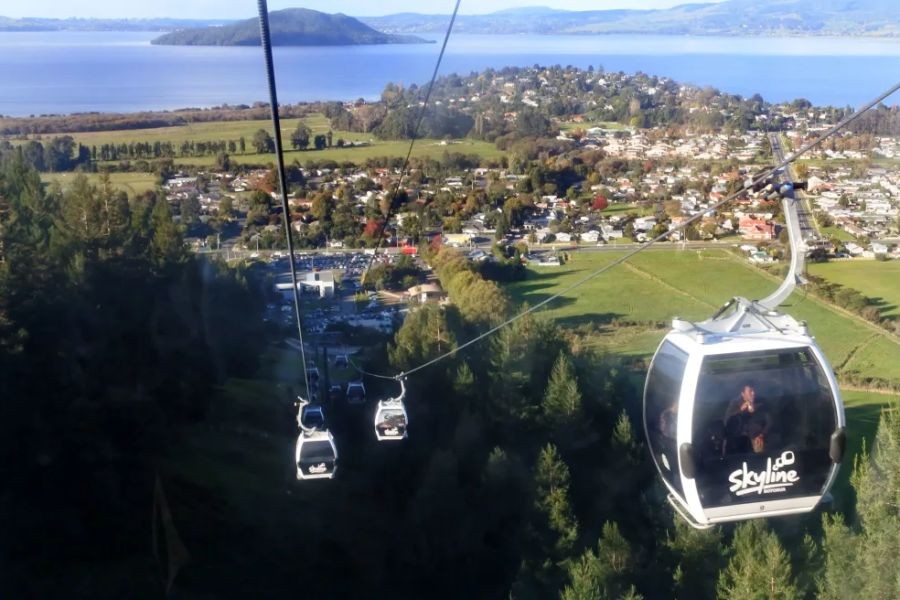New Zealand, known for its breathtaking landscapes and rich cultural tapestry, also grapples with complex socio-political issues. One such issue is the movement for Maori sovereignty, which has been a topic of intense debate in recent years. While some perceive this movement as a rightful reclamation of indigenous rights, others argue it could potentially divide the nation. This article delves into the intricacies of Maori sovereignty, examining its implications for New Zealand's economy, society, and tourism industry.
The Historical Context of Maori Sovereignty
To understand the current dynamics, it's essential to revisit the historical context. The Treaty of Waitangi, signed in 1840, is often considered New Zealand's founding document. However, the treaty's interpretation has been contentious, with Maori groups arguing that their sovereignty was never ceded. This historical backdrop is crucial for comprehending the modern sovereignty movement.
Pros and Cons of Maori Sovereignty
Pros
- Cultural Preservation: Maori sovereignty can bolster cultural preservation, ensuring that Maori heritage and traditions are safeguarded for future generations.
- Economic Opportunities: Empowering Maori groups can lead to economic growth through tourism and cultural enterprises. According to MBIE, Maori tourism is a growing sector, contributing significantly to the economy.
- Social Justice: Restoring Maori sovereignty addresses historical injustices, promoting equity and reconciliation.
Cons
- National Division: Critics argue that increased Maori sovereignty could lead to national division, potentially undermining social cohesion.
- Governance Challenges: Establishing distinct governance structures may lead to administrative complexities and inefficiencies.
- Economic Uncertainty: There are concerns about the economic implications, particularly if resource management becomes fragmented.
Maori Sovereignty and New Zealand's Economy
New Zealand's economy is intricately linked to its natural resources, tourism, and agriculture. The Maori sovereignty movement could influence these sectors in several ways:
- Tourism: Maori culture is a cornerstone of New Zealand's tourism industry. Enhancing Maori sovereignty could lead to more authentic cultural experiences, attracting global tourists. Recent data from Stats NZ reveals that cultural tourism has seen a 15% increase over the past year.
- Resource Management: Maori groups managing natural resources could lead to sustainable practices, aligning with global trends towards eco-friendly tourism and conservation.
Case Study: Te Urewera
Problem: Te Urewera, once a national park, faced challenges related to land management and cultural preservation.
Action: In a landmark decision, the Te Urewera Act 2014 gave the land its own legal identity, managed by a board that includes local iwi (tribes).
Result: This move has led to improved conservation efforts, with a 20% increase in biodiversity reported since 2015.
Takeaway: This case illustrates how Maori-led governance can result in positive environmental outcomes, offering a model for future sovereignty initiatives.
Expert Insights: The Path Forward
According to Dr. Ranginui Walker, a noted Maori academic, "Maori sovereignty is not about division but about partnership, envisioned in the Treaty of Waitangi." This perspective highlights the potential for a collaborative approach to governance, benefiting all New Zealanders.
Conversely, critics like economist Gareth Morgan warn of the economic risks, stating, "Fragmented governance could lead to inefficiencies, impacting New Zealand's global competitiveness."
Common Myths & Mistakes
- Myth: Maori sovereignty means secession. Reality: It's about achieving a partnership model of governance, not separation.
- Myth: Sovereignty will negatively impact tourism. Reality: Stats NZ data shows cultural tourism has improved visitor satisfaction and increased revenue.
Future Trends & Predictions
Looking ahead, Maori sovereignty is likely to gain momentum, with predictions suggesting increased autonomy in resource management. According to a Reserve Bank of New Zealand report, this shift could potentially boost the eco-tourism sector by 25% over the next decade.
Conclusion
Maori sovereignty is a multifaceted issue that requires careful consideration of its economic, social, and cultural implications. As New Zealand navigates this complex landscape, it's crucial for stakeholders to engage in constructive dialogue, ensuring that decisions benefit the entire nation. What are your thoughts on this debate? Share your insights below!
People Also Ask (FAQ)
- How does Maori sovereignty impact businesses in New Zealand? Maori sovereignty can offer economic opportunities through cultural tourism, enhancing business prospects in this sector.
- What are the biggest misconceptions about Maori sovereignty? A common myth is that it leads to national division, but evidence suggests it can foster national unity through partnership.
Related Search Queries
- Maori sovereignty movement
- Impacts of Maori governance
- New Zealand tourism trends
- Economic benefits of cultural tourism
- Maori cultural preservation































